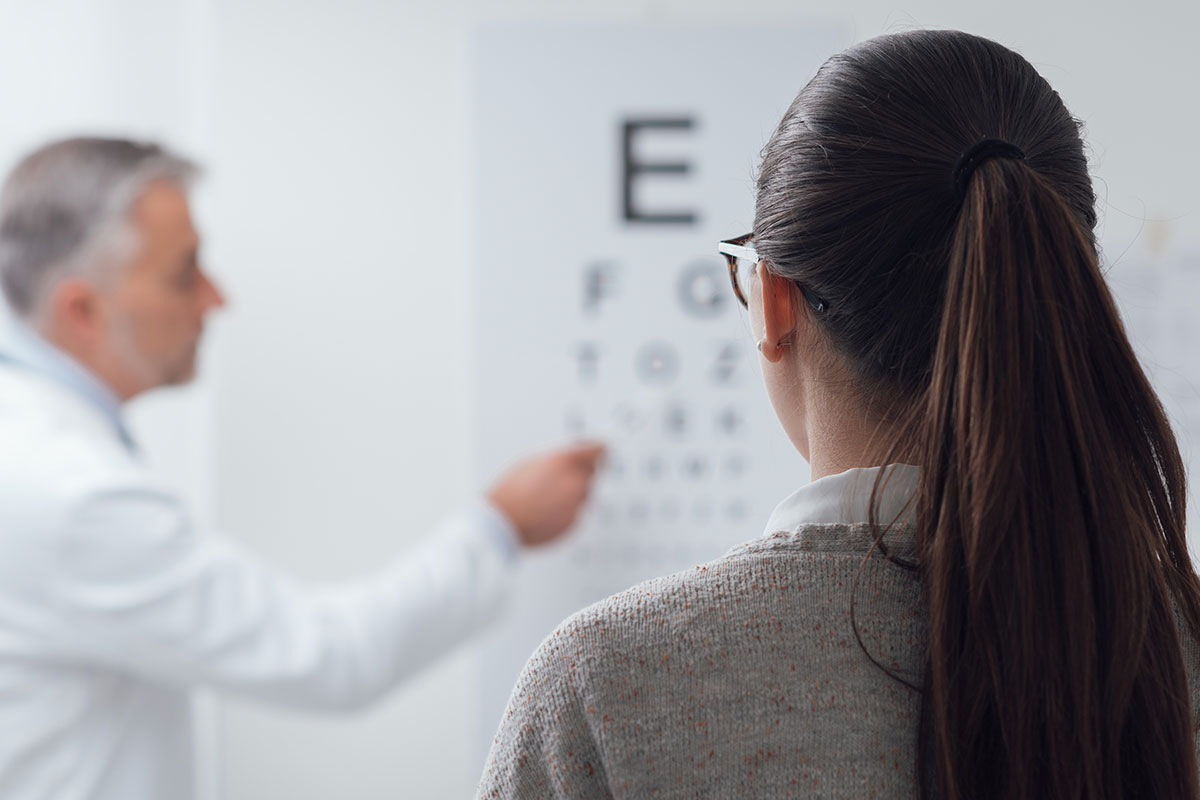Vision impairment refers to an individual’s eyesight being impaired or limited to a certain degree. Vision impairment may come in two forms — loss of visual acuity and loss of visual field. If the individual experiences a loss of visual acuity, they can’t see objects as clearly as they should. If the individual experiences a loss of visual field, they can’t see an extremely wide area without moving their head, i.e., their peripheral vision is compromised.
What is Vision Impairment?

The World Health Organization defines low vision as a visual acuity between 20/70 and 20/400. An individual with a visual acuity of 20/70 can see at 20 feet what a “normal” individual might see at 70 feet, and an individual with a visual acuity of 20/400 can see at 20 feet what a “normal” individual might see at 400 feet. Individuals with visual acuity worse than 20/400 are considered to be blind, but that does not mean they only see blackness.
Vision impairment can occur because of numerous reasons, such as degenerative changes in the eyes, underlying conditions, injuries, and age-related changes. The specific symptoms of vision impairment will also depend on the specific root cause of your vision problems. The eye doctor carefully examines the type of vision impairment you’re suffering and prescribes the ideal treatment, which may include corrective lenses.
Symptoms of Vision Impairment
Vision impairment can happen because of numerous age-related changes, injuries, and underlying eye conditions, such as retinal detachment, astigmatism, cataracts, and more. The specific symptoms of vision impairment depend on the root cause of your vision problems. As a general rule of thumb, you must contact an eye doctor when you notice any change to your vision or sight, even if the change is mild.
The following are some of the symptoms of vision impairment conditions:
- Nearsightedness: Blurry vision when you look at faraway objects.
- Farsightedness: Blurry vision at all distances but may be better at distance.
- Astigmatism: Blurry or double vision at all distances.
- Detached Retina: Light flashes and floaters in your vision.
- Color Blindness: Trouble distinguishing specific shades of colors.
- Night Blindness: Hard to identify objects clearly in the dark.
- Cataracts: Hazy, blurry, or foggy vision that worsens in bright light.
- Macular Degeneration: Dim or wavy vision with central blind spots.
- Glaucoma: Loss of peripheral vision.
- Inherited Retinal Diseases: retinitis pigmentosa, choroideremia, and other inherited conditions.
How is Vision
Impairment Diagnosed?
Medical Surgical Eye Institute recommends annual eye examination for all individuals to monitor eye health and diagnose possible eye conditions at the earliest stage possible. During your eye examination, the eye doctor will examine your eyes, check the movement of your eyes, and perform numerous imaging tests to identify underlying conditions that may cause visual impairments. Depending on your specific condition and symptoms, the eye doctor may administer eye chart tests, retinoscope tests, slit-lamp microscope exams, pressure tests, and other diagnostic tests.


Treatments for
Vision Impairment
If your eye exam reveals that you have refractive errors, such as nearsightedness, farsightedness, or astigmatism the eye doctor will recommend contact lenses or corrective glasses. Corrective lenses are the standard treatment for most visual acuity problems. But if you’re suffering from cataracts, macular degeneration, glaucoma, or other eye conditions, the eye doctor will have to formulate a personalized treatment plan based on your specific conditions. Our eye doctors address the root cause of your vision impairment issues to mitigate progressive vision loss.
Schedule an Appointment
Medical Surgical Eye Institute is a premier eye care center specializing in the diagnosis and treatment of vision problems. Our eye doctors take a proactive rather than reactive approach to your ocular health. Our eye doctors use cutting-edge diagnostic solutions to identify the root cause of your vision impairments and formulate a personalized treatment plan to help you maintain optimal ocular health. If you’re suffering from vision impairment, please schedule an appointment at our eye care center in Worcester, MA.

